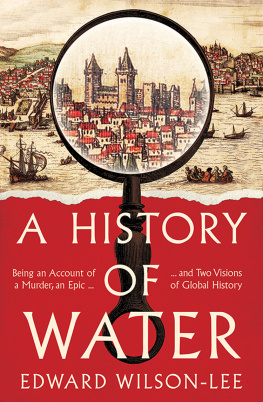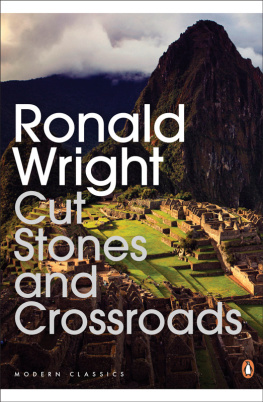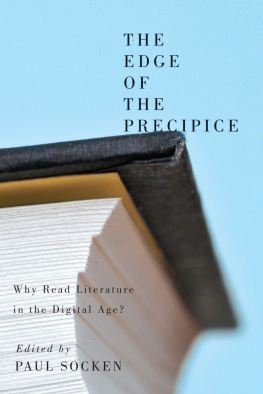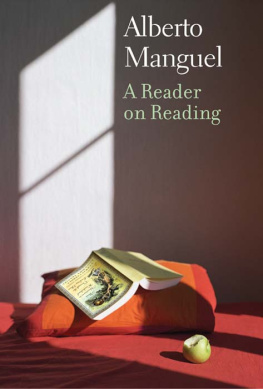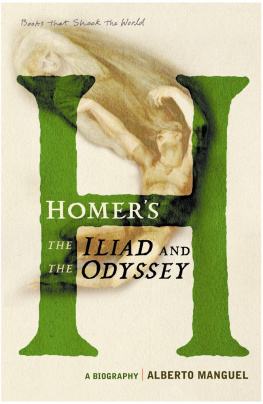The City of Words
Alberto Manguel

Copyright 2007, Alberto Manguel
All rights reserved. No part of this publication may be reproduced or transmitted in any form or by any means, electronic or mechanical, including photocopying, recording, or any information storage and retrieval system, without permission in writing from the publisher.
Distribution of this electronic edition via the Internet or any other means without the permission of the publisher is illegal. Please do not participate in electronic piracy of copyrighted material; purchase only authorized electronic editions. We appreciate your support of the authors rights.
This edition published in 2009 by
House of Anansi Press Inc.
110 Spadina Avenue, Suite 801
Toronto, ON, M5V 2K4
Tel. 416-363-4343
Fax 416-363-1017
www.anansi.ca
LIBRARY AND ARCHIVES CANADA CATALOGUING IN PUBLICATION
Manguel, Alberto, 1948
The city of words / Alberto Manguel.
(CBC Massey lecture series)
Includes index.
eISBN 978-0-88784-849-0
1. Toleration. 2. Violence. 3. Literature and society.
4. Fiction Social aspects. I. Title. II. Series.
HM1271.M356 2007 303.6 C2007-903437-3
Library of Congress Control Number: 2007928058
Cover design: Bill Douglas
Cover photograph: Getty Images

We acknowledge for their financial support of our publishing program the Canada Council for the Arts, the Ontario Arts Council, and the Government of Canada through the Canada Book Fund.
To Alice, Rachel, and Rupert, to Nathan, Amanda, Naomi and Andrew who will no doubt find their own stories.
The love of liberty is the love of others; the love of power is the love of ourselves.
William Hazlitt, Political Essays, 1819
INTRODUCTION
WHY ARE WE TOGETHER?
I will deal with each aspect of this question by fragments, by unconnected pieces, because the passing from one area of knowledge to another fans the pleasure and ardour of reading. If I were to write the chapters of my book in a continuous form, each time exhausting the chosen subject, they would certainly be more complete, more comprehensive, of a nobler character. But I fear lengthy texts, and you, reader, are worthy and capable of grasping the whole by means of a few random details, and of knowing the end by learning the beginning.
Jahiz, The Book of Animals, IX cen.
AFTER THE TWO World Wars of the past century, the exercise of assembling and disassembling countries gave birth to two opposing impulses. One was to enlarge the notion of society, to return to an altered version of the imperialistic model under the guise of a gathering of nations, none primo inter pares, and to call this patchwork the Western World or the Society of Arab Nations, the African Confederacy or the Pacific Rim Countries, the Southern Cone or the European Union. The other was to reduce society to a minimum common denominator, tribal if not familial, based on ancient ethnic or religious roots: Transdnistria, the Basque Country, Quebec, the communities of Shiites or Sunnites, Kosovo. In both cases, composite or singular, every society we conceive into existence seeks its definition as much in a complex multiple vision of itself as in its opposition to another. Every border excludes as much as it includes, and these successive redefinitions of nation act like circles in the set theory of numbers, overlapping and intersecting one another. Caught between definitions of nationality and globalization, between endemic loyalties and a chosen or enforced exodus, the notion of identity, personal and social, has become diffuse, uncertain. Within this endless flux, what name do we assume, singly and in groups? How does interaction with others define us and define our neighbours? What are the consequences, the threats, and the responsibilities of living in a society? What happens to the language we speak, supposed to allow us to communicate among us? In fact, why are we together?
When I mentioned to Ronald Wright, whose brilliant Massey Lectures on the notion of progress were delivered a few years ago, that a possible title for my talks might be Why are we together? his response was: Whats the alternative? Of course there is no alternative. For better or for worse, we are gregarious animals, condemned to or blessed with the task of living together. My question does not imply that there is an alternative: instead, it seeks to know what some of the benefits and blights of togetherness might be, and how we manage to put this imagination of togetherness into words.
Less a question than a series of questions, less an argument than a string of observations, the subject of these lectures is a confession of bewilderment. I have discovered that, with the passing of the years, my ignorance in countless areas anthropology, ethnology, sociology, economy, political science, and many others has become increasingly perfected while, at the same time, a lifelong practice of haphazard readings has left me with a sort of commonplace book in whose pages I find my own thoughts put into the words of others. In the realm of storytelling Im a little more at ease, and since stories, unlike scientific formulations, dont expect (reject, in fact) clear-cut answers, I can muddle around in this territory without feeling bullied into providing solutions or advice. Perhaps for this reason, these talks will have something unsatisfactory about them: because my questions must remain, in the end, questions. Why do we seek definitions of identity in words, and what is, in such a quest, the storytellers role? How does language itself determine, limit, and enlarge our imagination of the world? How do the stories we tell help us perceive ourselves and others? Can such stories lend a whole society an identity, whether true or false? And to conclude, is it possible for stories to change us and the world we live in?
ALBERTO MANGUEL, Mondion, 2007
I.
THE VOICE OF CASSANDRA
Vain was the chiefs and sages pride
They had no Poet and they dyd!
In vain they schemd, in vain they bled They had no Poet and are dead!
Horace, Odes IV:9 [trans. Alexander Pope, 1733]
LANGUAGE IS OUR common denominator.
Alfred Dblin, one of the greatest novelists of the twentieth century, was once asked in a questionnaire why he wrote: he answered that this was a question he refused to ask himself. The finished book doesnt interest me, he said, only the book that is being written, the book to come. Writing was for Dblin an action that sifted through our present into our future, a constant flow of language that allowed words to shape and name the reality which is always in the process of being formed. Method has no place in art, folly is better, he wrote in a letter to the Italian poet T. F. Marinetti, after Marinetti had proposed, in the Paris Figaro of February 20, 1909, that artists adopt a futurist method to implement their craft, embracing action, violence and industrial change. Tend to your futurism, Dblin instructed his effusive colleague, Ill tend to my Dblinism. But what exactly was this Dblinism? Alfred Dblin had served as a medical officer in the German army during the First World War before setting up his practice in the slums of East Berlin, whose identity he portrayed in his most famous novel, Berlin Alexanderplatz, of 1929. He was a man of awkward contradictions: a Prussian Jew who late in life converted to Catholicism, a radical socialist who opposed the tenets of the Russian Revolution, a psychiatrist who admired Freud but doubted the dogmas of psychoanalysis, and a proponent of an exuberant literature that constantly contravened its own rules but who sought in the traditional books of the Bible the basic mythology of his fiction. His subject was the changing identity of the twentieth-century world, but his hero was the everyman Job of the Old Testament, suffering but not meek, vocal but not strident, the paragon of unjustified victimhood. In 1933, under threat by the rising Nazi regime, like so many other German intellectuals Dblin sought refuge in France with his family and, seven years later, after the occupation of Paris, escaped by a dangerous route through Spain and Portugal to the United States. There he was offered several jobs, including that of scriptwriter in Hollywood: several scenes from


